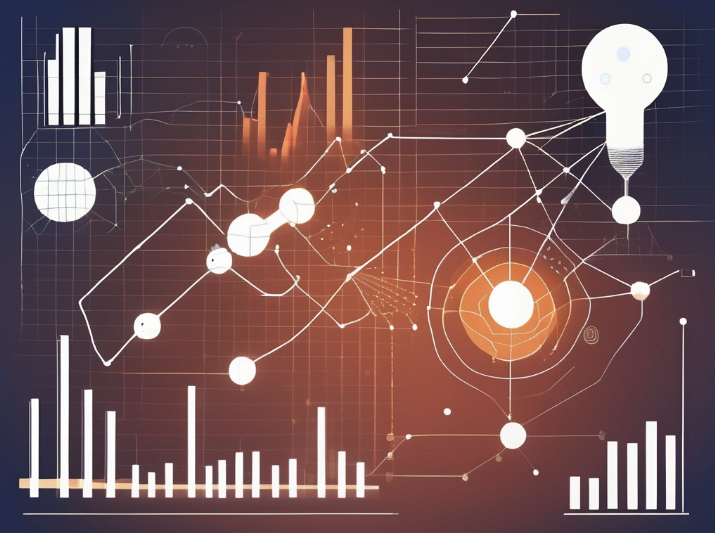With the increasing prevalence of smartphones in our daily lives, concerns about privacy and surveillance have become more prominent.
Many people wonder if their phone activities are being monitored by government agencies like the Federal Bureau of Investigation (FBI).
Does the FBI Watch My Phone?
The FBI does not routinely monitor the phones of private citizens, but they can legally do so if they have a court order based on substantial evidence in the context of a specific investigation.
Below we look deeper at the topic of whether the FBI watches your phone, examining the legal framework, technological capabilities, and real-life examples.
By the end, you will have a better understanding of the extent to which your phone may be subject to surveillance.
Table of Contents
The Legal Framework
Before delving into the specifics of FBI surveillance, it is important to understand the legal framework that governs such activities.
In the United States, the Fourth Amendment of the Constitution protects individuals from unreasonable searches and seizures.
This means that law enforcement agencies, including the FBI, generally require a warrant issued by a judge based on probable cause to conduct surveillance on someone’s phone.
However, there are exceptions to this requirement.
For instance, in cases where there is an imminent threat to national security or during investigations related to terrorism, the FBI can obtain a Foreign Intelligence Surveillance Act (FISA) warrant, which has a lower threshold for approval compared to traditional warrants.
FISA warrants allow for broader surveillance activities, including monitoring phone communications.
Technological Capabilities
The advancement of technology has significantly enhanced the surveillance capabilities of law enforcement agencies, including the FBI.
With access to sophisticated tools and techniques, it is possible for them to monitor various aspects of your phone usage.
Here are some of the key methods they may employ:
- Call Metadata: The FBI can collect metadata, such as the phone numbers you call, the duration of calls, and the date and time of communication. This information can provide valuable insights into your social connections and patterns of communication.
- Wiretapping: In certain cases, the FBI may obtain a wiretap warrant to intercept and record phone conversations. This allows them to listen in on your calls and gather evidence for ongoing investigations.
- Location Tracking: Through various means, including cell tower triangulation and GPS technology, the FBI can track the location of your phone. This information can be used to establish your whereabouts at specific times.
- Internet Surveillance: The FBI can also monitor your internet activities on your phone, including browsing history, search queries, and social media interactions. This can provide them with insights into your online behavior and interests.
Real-Life Examples
While the FBI’s surveillance activities are generally conducted covertly, there have been instances where their actions have come to light.
These examples shed light on the extent of their capabilities and the circumstances under which they may monitor phones:
1. San Bernardino iPhone Case
In 2016, the FBI sought Apple’s assistance in unlocking an iPhone used by one of the shooters involved in the San Bernardino terrorist attack.
Apple refused to create a backdoor that would compromise the security of all iPhones, leading to a legal battle.
Eventually, the FBI found an alternative method to unlock the phone without Apple’s help, highlighting their ability to bypass certain security measures.
2. Stingray Devices
The FBI has been known to use Stingray devices, also known as cell site simulators, to track and intercept phone communications.
These devices mimic cell towers and can capture data from nearby phones, including call content and location information.
The use of Stingrays has raised concerns about the potential infringement of privacy rights.
3. Edward Snowden Revelations
In 2013, Edward Snowden, a former NSA contractor, leaked classified documents that revealed the extent of government surveillance programs.
The documents showed that the FBI, along with other intelligence agencies, had access to vast amounts of phone data through programs like PRISM.
This revelation sparked a global debate on privacy and surveillance.
FAQs: Does the FBI Watch My Phone?
1. Can the FBI access my phone without a warrant?
No, under normal circumstances, the FBI requires a warrant issued by a judge based on probable cause to access the contents of your phone.
2. Can the FBI track my location through my phone?
Yes, the FBI has the capability to track the location of your phone through various methods, including cell tower triangulation and GPS technology.
3. Can the FBI listen to my phone calls?
The FBI can listen to your phone calls if they obtain a wiretap warrant, which requires approval from a judge based on probable cause.
4. Does the FBI monitor my internet activities on my phone?
Yes, the FBI can monitor your internet activities on your phone, including browsing history, search queries, and social media interactions.
5. Can the FBI remotely access my phone’s camera and microphone?
While it is technically possible for the FBI to remotely access your phone’s camera and microphone, they generally require a warrant to do so.
6. Can the FBI access my encrypted messages?
The FBI may attempt to access encrypted messages on your phone, but the level of success depends on the encryption method used.
Strong encryption can make it extremely difficult for them to decrypt the messages.
7. Can the FBI access deleted data on my phone?
Deleted data on your phone may still be recoverable by the FBI or other forensic experts, depending on the level of deletion and the capabilities of their tools.
8. Can the FBI monitor my phone without me knowing?
Yes, the FBI can monitor your phone without your knowledge if they have obtained the necessary legal authorization, such as a warrant or a FISA warrant.
9. Can the FBI access my phone’s cloud storage?
The FBI can access your phone’s cloud storage, but they generally require a warrant to do so.
However, if you have not encrypted your cloud data, it may be more vulnerable to unauthorized access.
10. Can the FBI track my phone if it is turned off?
If your phone is turned off, it becomes more difficult for the FBI to track its location.
However, certain techniques, such as pinging nearby cell towers, may still provide some indication of its last known location.
11. Can the FBI monitor all phones simultaneously?
The FBI does not have the capacity to monitor all phones simultaneously.
They typically focus their surveillance efforts on specific individuals or groups of interest based on ongoing investigations.
12. Can the FBI access my phone’s biometric data?
The FBI can potentially access your phone’s biometric data, such as fingerprints or facial recognition data, if they have obtained a warrant that includes permission to collect such information.
13. Can the FBI remotely install spyware on my phone?
The FBI has the capability to remotely install spyware on phones, but they generally require a warrant to do so.
However, such actions are subject to legal and constitutional limitations.
14. Can the FBI access my phone’s data through third-party apps?
The FBI can potentially access your phone’s data through third-party apps if they have obtained the necessary legal authorization and if the app’s security measures allow for such access.
15. Can the FBI access my phone’s data if I use a VPN?
Using a Virtual Private Network (VPN) can provide an additional layer of security and privacy, making it more difficult for the FBI to access your phone’s data.
However, it is not foolproof, and the FBI may still be able to gather certain information.
Summary
While the FBI has the legal authority and technological capabilities to monitor phones, their surveillance activities are subject to legal restrictions and oversight.
They generally require a warrant or a FISA warrant to access the contents of your phone, listen to your calls, or track your location.
However, it is important to be aware of the potential risks and take steps to protect your privacy, such as using strong encryption, regularly updating your phone’s software, and being cautious about the apps you install.
By staying informed and taking proactive measures, you can better safeguard your digital privacy in an increasingly connected world.


